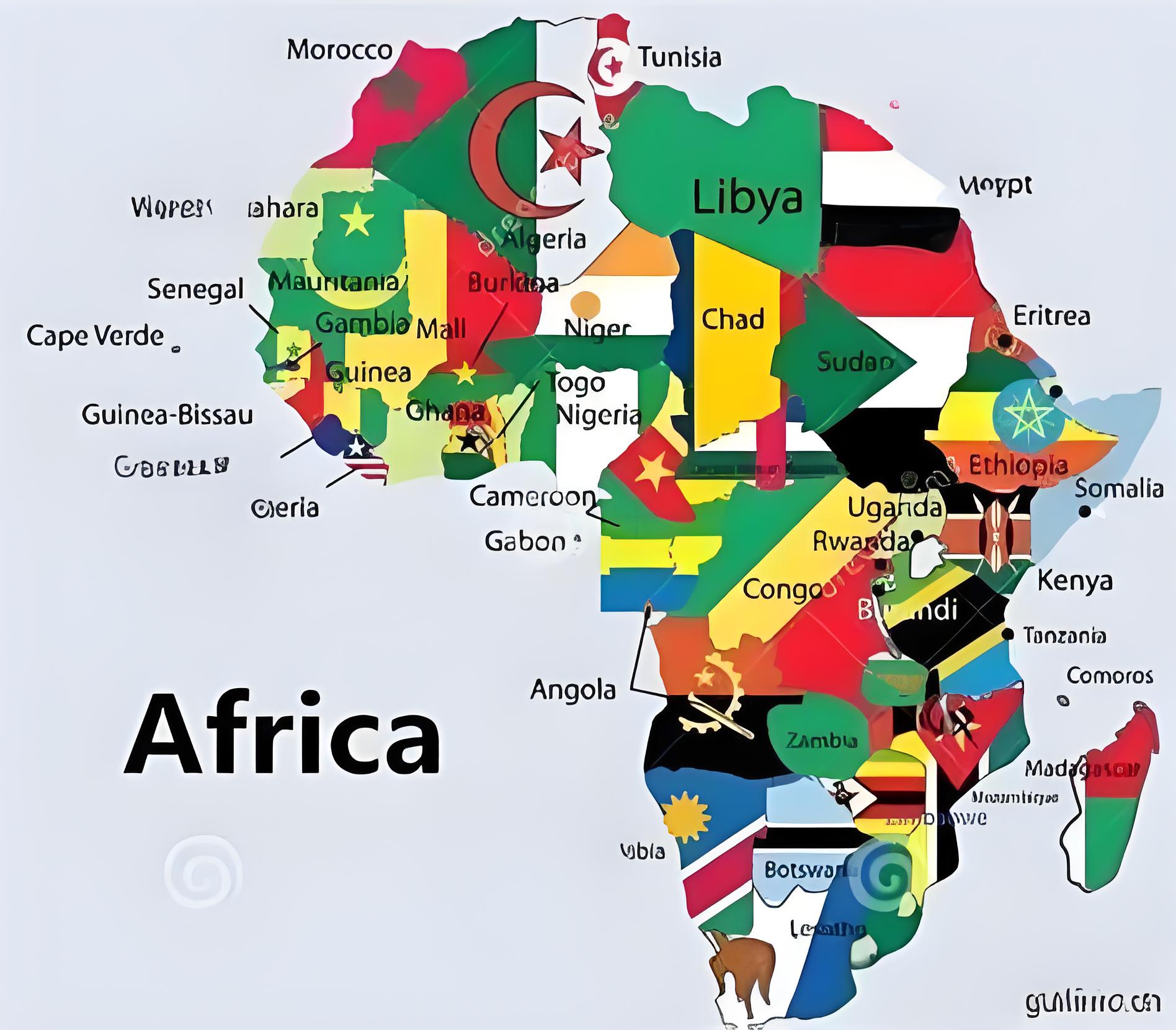
On the vast African continent, economic development is showing amazing resilience, like a tenacious ground-breaking seed, blooming vigorously in a challenging environment.
The African Development Bank's Macroeconomic Performance and Outlook for the African Continent is a beacon that illuminates the way forward for the African economy. The report points out that the continent's real gross domestic product (GDP) growth rate is expected to average 3.8% and 4.2% in 2024 and 2025, respectively, which is not only higher than the global growth rate forecast, but also highlights the huge potential of the African economy. Of the world's 20 fastest-growing economies in 2024, 11 will be in Africa, led by Niger with a strong 11.2 percent growth, Senegal with 8.2 percent and Libya with 7.9 percent. These figures are shining like bright stars in the night sky of the world economy.
From the perspective of various regions, Africa's economic growth momentum is good, like a colorful picture is slowly unfolding. The East Africa region, benefiting from increased strategic investments to improve internal connectivity and deepen intraregional trade, continues to lead Africa's growth momentum. Like a high-speed train, East Africa is hurtling forward on the track of development. In 2024 and 2025, East Africa's GDP growth rate is expected to rise to 5.1% and 5.7%, respectively, injecting a strong impetus to the development of the African economy. Here, infrastructure construction is constantly advancing, trade is increasingly frequent, and people's lives are quietly changing.
The North African region, however, has maintained steady growth despite continued adverse weather conditions and macroeconomic challenges. Like an oasis in the desert, it blossoms into life in a difficult environment. Growth is expected to stabilize at 3.9% in 2024 and increase slightly to 4.1% in 2025. In response to the challenges, North African countries have actively promoted stable economic development through measures such as developing tourism and strengthening agricultural modernization.
Central Africa, where growth is expected to slow to 3.5% in 2024, is like a dormant seed with unlimited life. A recovery in personal consumption, as well as increased mining investment and exports, will likely lift growth to 4.1 per cent in 2025. Rich natural resources provide a solid foundation for the development of Central Africa, and the continuous promotion of industrial diversification strategy will also open up a broader road for its future development.
In the South African region, growth is expected to remain subdued at 2.2% and 2.6% in 2024 and 2025, respectively. However, South Africa did not give up its efforts, like a brave soldier, and kept exploring the way forward in the difficult situation. By strengthening scientific and technological innovation, promoting industrial upgrading and other measures, South Africa is trying to get rid of the dilemma of economic growth and contribute to the stable development of the regional economy.
In West Africa, growth is expected to rise to 4% and 4.4% in 2024 and 2025, respectively. It is like a vibrant ocean, brimming with endless opportunities. While growth has slowed in Nigeria and Ghana, this will be offset by strong growth in most countries in the region. However, Burkina Faso, Mali and Niger announced their withdrawal from the Economic Community of West African States (ECOWAS), which also created some uncertainty for economic growth in the region. But the West African countries did not hold back, they actively seek cooperation opportunities, strengthen the construction of regional economic integration, and strive to achieve common development.
African economies have shown such resilience thanks to a confluence of factors. Policy reform and business environment improvement, like a spring breeze, have brought new vitality to Africa's economic development. In recent years, African countries have adopted a series of supportive policies and reform measures. Ethiopia's removal of import restrictions has opened new doors for trade development; South Africa adopted prudent monetary policy to stabilize inflation expectation, which laid a solid foundation for stable economic development. Senegal has strengthened fiscal and tax consolidation and promoted industrial structural reform, injecting strong impetus into sustainable economic growth. These measures have not only promoted stable economic growth, but also created a better business environment for investors.
Technological innovation and digital transformation, like a magic key, have opened doors for the development of emerging industries in Africa. African countries continue to promote scientific and technological innovation and digital transformation, injecting new impetus into economic development. In East Africa, total startup funding is growing rapidly, with Kenya's mobile payment platforms leading to the rise of fintech. Here, people can easily complete payment, transfer and other operations through mobile phones, and enjoy the convenience brought by technology. In addition, African countries have accelerated the development of renewable energy, such as Egypt, Algeria, Morocco and other countries continue to introduce measures to develop green hydrogen industry. This not only helps to reduce dependence on traditional energy sources, but also makes a positive contribution to environmental protection.
The advancement of the economic integration process is like a solid bond that binds African countries closely together. The construction of the African continental Free Trade area has promoted cross-border trade cooperation and market integration, and driven regional economic growth. Through strengthening regional trade cooperation, the trade volume of East African Community countries increased by nearly 20% year-on-year, and Ghana's exports to other African countries increased by 20% after the launch of the African Continental Free Trade Area. This figure is the result of the joint efforts of African countries and the huge dividends brought by economic integration. The growth of intra-regional trade not only promotes the economic development of various countries, but also brings more employment opportunities and development opportunities for people.
Africa's economic development has not been smooth sailing and it still faces some challenges. The unitary economic structure, weak infrastructure and debt problems are just like a series of mountains, which lie in the road of Africa's economic development. But it is these challenges that make African countries more determined to reform and innovate. They actively explore diversified economic development paths, strengthen infrastructure construction, and strive to solve the debt problem to lay a solid foundation for sustainable economic development. Africa's economic development is highly resilient and has a promising future. In this land full of hope, people are writing their own brilliant chapter with wisdom and sweat. It is believed that in the near future, the African economy will move towards a better future with a more steady pace.

On November 19, 2025, US President Donald Trump signed a bill requiring the Department of Justice to release documents related to the case of the late tycoon Jeffrey Epstein.
On November 19, 2025, US President Donald Trump signed a bi…
While the world's attention is focused on the 21.3 trillion…
On November 12, 2025, US President Trump signed a temporary…
On November 19th local time, the US Department of Commerce …
Recently, a report from CNN pointed out that the Atlantic t…
Recently, the U.S. stock market has experienced a thrilling…